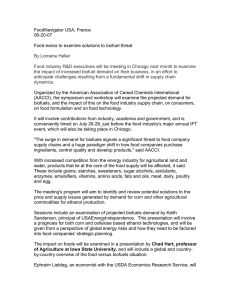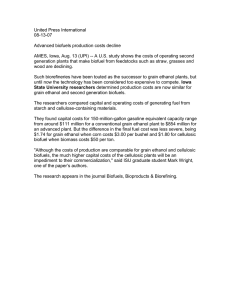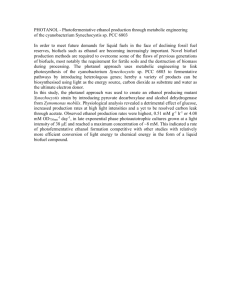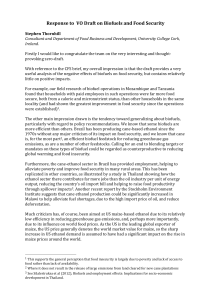Biofuels will hamper food security
advertisement
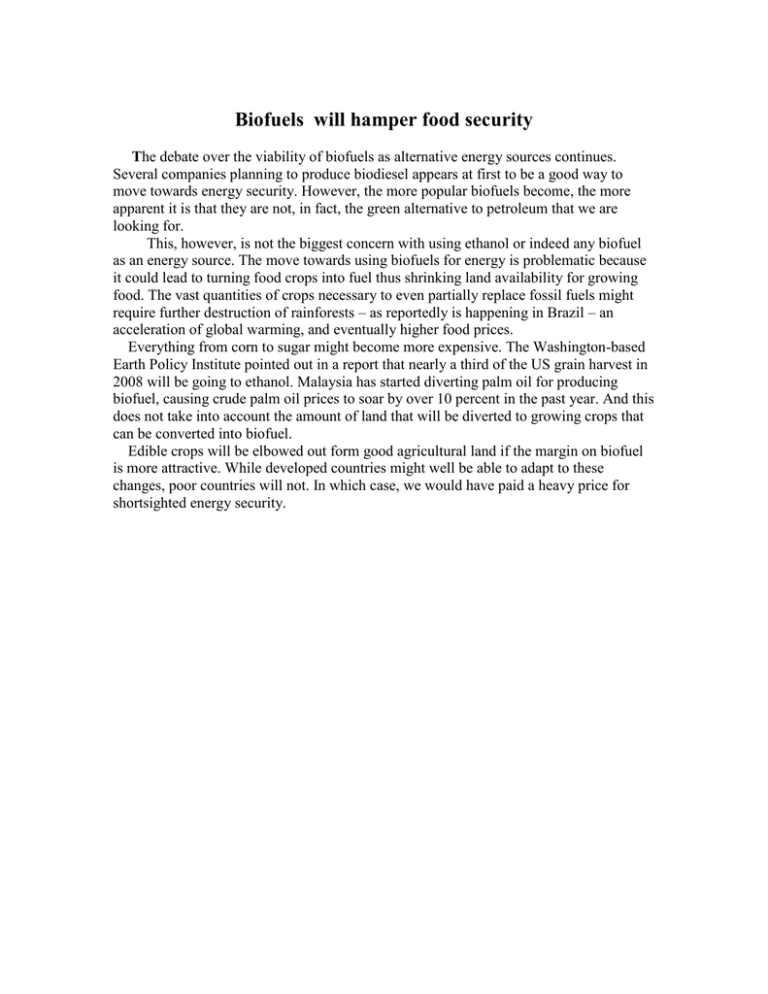
Biofuels will hamper food security The debate over the viability of biofuels as alternative energy sources continues. Several companies planning to produce biodiesel appears at first to be a good way to move towards energy security. However, the more popular biofuels become, the more apparent it is that they are not, in fact, the green alternative to petroleum that we are looking for. This, however, is not the biggest concern with using ethanol or indeed any biofuel as an energy source. The move towards using biofuels for energy is problematic because it could lead to turning food crops into fuel thus shrinking land availability for growing food. The vast quantities of crops necessary to even partially replace fossil fuels might require further destruction of rainforests – as reportedly is happening in Brazil – an acceleration of global warming, and eventually higher food prices. Everything from corn to sugar might become more expensive. The Washington-based Earth Policy Institute pointed out in a report that nearly a third of the US grain harvest in 2008 will be going to ethanol. Malaysia has started diverting palm oil for producing biofuel, causing crude palm oil prices to soar by over 10 percent in the past year. And this does not take into account the amount of land that will be diverted to growing crops that can be converted into biofuel. Edible crops will be elbowed out form good agricultural land if the margin on biofuel is more attractive. While developed countries might well be able to adapt to these changes, poor countries will not. In which case, we would have paid a heavy price for shortsighted energy security.

